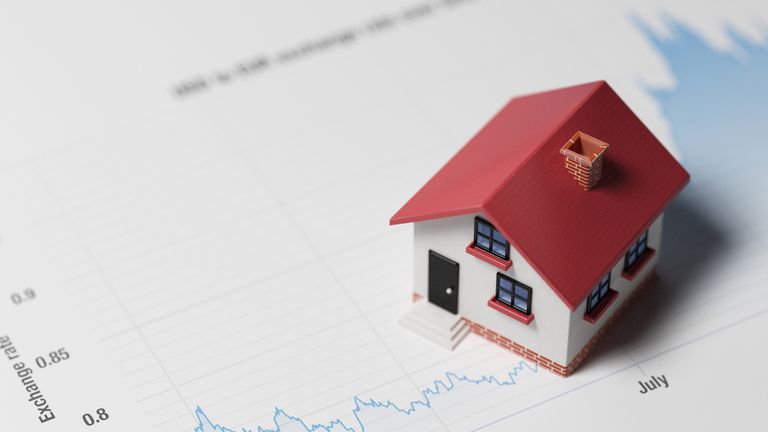Deposit affordability is facing a squeeze as the annual rate of house price growth hit its highest level since November 2004, according to a report.
Nationwide’s monthly market study pointed to a 13.4% surge in the average cost of a home over the 12 months to June – partly a result of a low base for activity a year ago due to the first COVID-19 lockdown.
The mortgage lender charted a 0.7% rise in the average cost of a home between May and June alone – hitting £245,432 and marking an increase of almost 5% during the second quarter of the year.
The report said there remained “significant momentum” in the market because of national government tax breaks aimed at supporting activity, including a stamp duty holiday in England and Northern Ireland, combined with weak supply of homes for sale.
Record low interest rates have also contributed to the frenzy though experts say first-time buyers were still finding deposits a real barrier despite government help and the increased availability of mortgages with low deposit demands.
Nationwide warned that prices were now close to a record high relative to average incomes.
Its chief economist, Robert Gardner, said: “This is important because it makes it even harder for prospective first time buyers to raise a deposit.
“For example, a 10% deposit is over 50% of (a) typical first time buyer’s income.
“A potential buyer earning the average wage and saving 15% of take home pay would now take five years to raise a 10% deposit,” he noted.
The report showed all parts of the UK saw an acceleration in annual house price growth during the three months to June.
“Northern Ireland and Wales saw the largest gains, at 14% and 13.4% respectively… By contrast Scotland saw the weakest rate of annual growth, at 7.1% closely followed by London at 7.3%,” Mr Gardner said.
While government tax support for buyers in Scotland ended at the end of March, Chancellor Rishi Sunak announced at the budget that England and Northern Ireland would continue to benefit from a stamp duty holiday beyond the end of March to 30 June.
The tax cut is tapered from Thursday until 30 September when it is due to be withdrawn completely.
Mr Gardner suggested other factors would continue to support prices.
Listen and subscribe to The Ian King Business Podcast here
“Underlying demand is likely to remain solid in the near term as the economy unlocks.
“Consumer confidence has rebounded while borrowing costs remain low. This, combined with a lack of supply on the market, suggests further upward pressure on prices.
“But as we look toward the end of the year, the outlook is harder to foresee. Activity will almost inevitably soften for a period after the stamp duty holiday expires at the end of September.”

